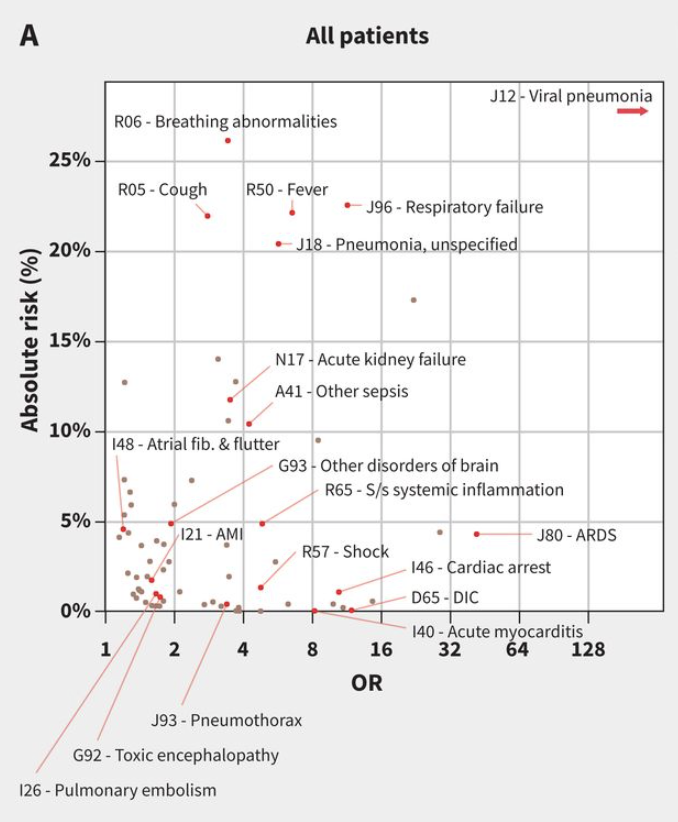AstraZeneca-Oxford Vaccine's Bad Press
"It's very important to understand that, yes, we should continue to be using the AstraZeneca vaccine.""[The vaccine is] excellent.""All that we look at is what we always look at: Any safety signal must be investigated."Margaret Harris, spokeswoman, World Health Organization"[Of the ten million patients who received the vaccine AstraZenec Canada's review has uncovered] no evidence of an increased risk of pulmonary embolism or deep vein thrombosis in any defined age group, gender, batch or in any particular country.""In fact, the observed number of these types of events are significantly lower in those vaccinated than what would be expected among the general population."Carlo Mastrangelo, head, corporate affairs, communications and sustainability, AstraZeneca Canada
 |
| Empty vials of the AstraZeneca-Oxford COVID-19 vaccine at a vaccination centre in western France. Some countries have temporarily halted use of the vaccine while clotting reports are investigated. Canada is among the countries continuing to use it. (Fred Tanneau/AFP/Getty) |
According to Dr.Zain Chagla, infectious disease physician at St.Joseph Hospital in Hamilton, Ontario, the normal incidence of blood clots is roughly one in 1,000 patients over the course of a year and when millions of people are being vaccinated, the development of clots is not unusual. Whether those developing clots might have done so without the inoculation however, is perhaps the crux of the matter.
Nine countries in Europe along with Thailand have put a pause on use of AstraZenca's vaccine doses. Some permanently, others targeting only certain batches -- awaiting further investigation of the occurrence of blood clots which some have linked to the use of the AstraZeneca-Oxford vaccine. In actual fact no experts have suggested a link exists between the vaccine and the development of blood clots.
On Friday, the World Health Organization emphasized what they've been saying since rumours of a link surfaced, by unequivocally endorsing AstraZeneca's vaccine for its efficacy and safety. It has been pointed out that the WHO views the shot as the least expensive, most high-volume of the vaccines launched to date, identifying it as the mainstay of the developing world's vaccination programs.
In Canada, its initial 500,000 doses of AstraZeneca are being used in inoculating target groups -- with the exception of anyone over age 65 until such time as further research clarifies its usefulness for an older demographic. Health Canada announced its authorization of the vaccine based on a thorough, independent review of the evidence presented by the pharmaceutical company, determining the vaccine meets Canada's stringent safety, efficacy and quality standards.
As far as Canadian health authorities are concerned, while maintaining a vigilance over the European investigations of the Oxford-AstraZeneca vaccine following reports of blood clots post-inoculation, there appears no evidence the vaccine caused the clots. "To date, no adverse events related to the AstraZeneca COVID -19 vaccine or the version manufactured by the Serum Institute of India (where the Canada-destined vaccine is sourced) have been reported to Health Canada or the Public Health Agency of Canada".
It would be well to bear in mind that Israel, the country which has outstripped all others around the globe in swiftly and successfully administering the AstraZeneca vaccine to a majority of its population has seen no problems arise there. Its success has been celebrated and the country's initiative and efficiency in administering the vaccine so widely is held as an astounding success story the rest of the world aspires to emulate.
In Denmark which halted AstraZeneca vaccine after an undisclosed number of blood clots were reported and a patient died, health authorities explained they halted the use of the vaccine in a spirit of caution and not because there were any suspicions that a connection existed between the vaccine and the blood clot development.
The issue is under study by the EU regulator European Medicines Agency which observes that 30 blood clots in over five million patients who received the vaccine is not unusual nor out of step with what is considered the normal rate of blood clots in the general population. So while Denmark, Iceland, Norway and a handful of other European countries have suspended use of the vaccine, other countries including Germany, France, Poland, Nigeria, the United Kingdom and Canada continue its use in view of a lack of evidence it poses a health risk.
Health Canada's chief medical adviser Dr. Supriya Sharma, adds that with no scientific basis for a link between blood clots and the AstraZeneca shot there is no reason to discontinue or pause its use: "There's not a good biological explanation about why a vaccine of this type, injected into a muscle, would cause that kind of adverse event ."
 |
| The available data suggest that among 5 million people who received the AZ vaccine, 30 developed a blood clot. So, 30 in 5 million. Our research team has shown that among those with COVID about 2% developed a blood clot. So about 100,000 in 5 million. cmaj.ca/content/193/1/ |
Labels: Astra-Zeneca/Oxford, Blood Clots, COVID-19, Europe, Health Canada, Inoculation, Vaccination Doubts

0 Comments:
Post a Comment
<< Home